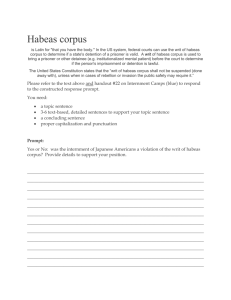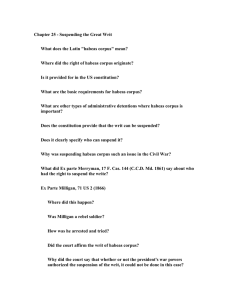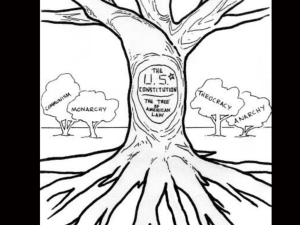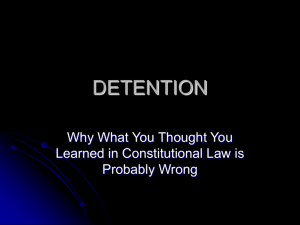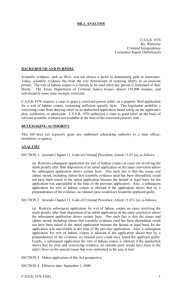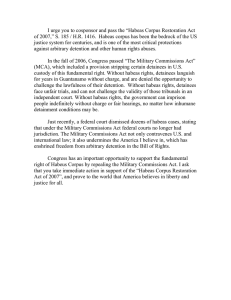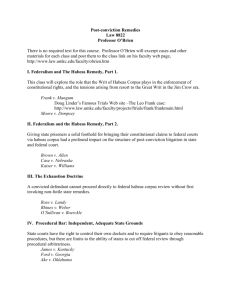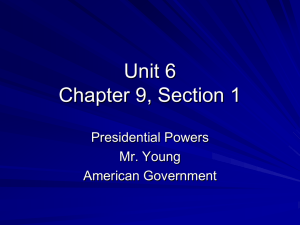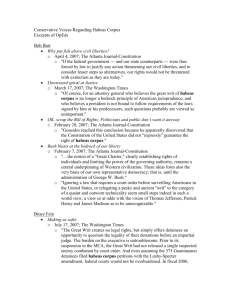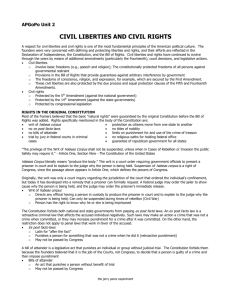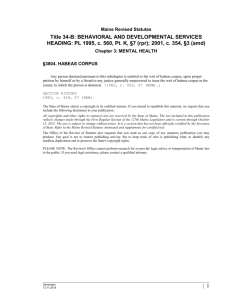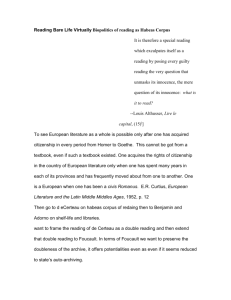the habeas corpus act of the english parliament
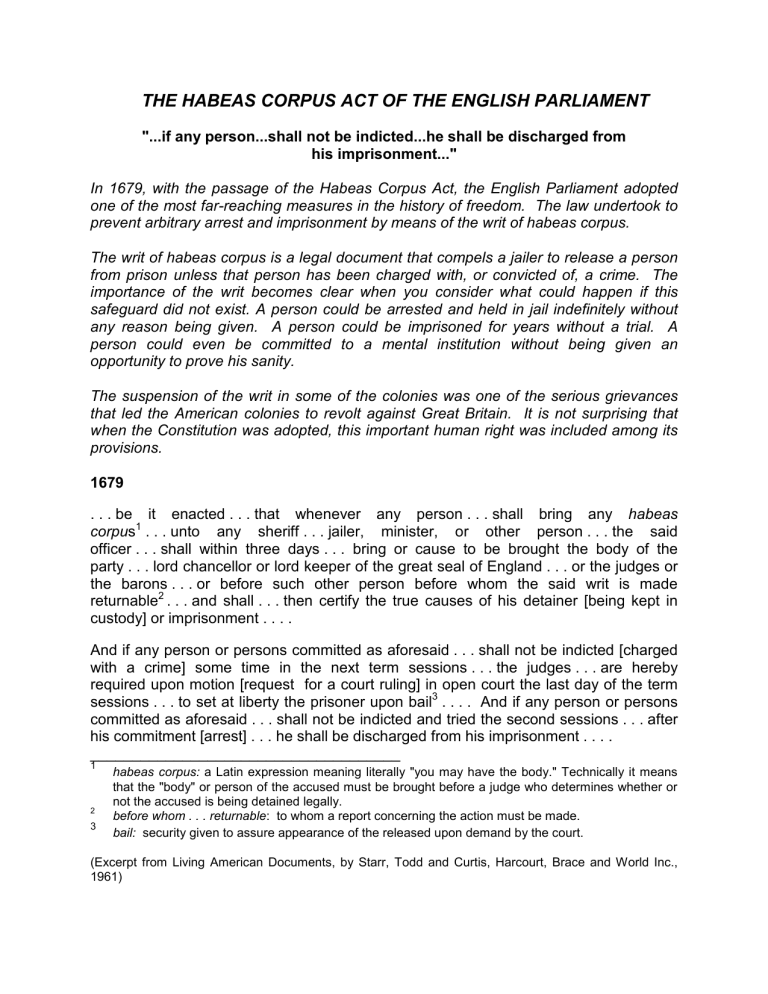
THE HABEAS CORPUS ACT OF THE ENGLISH PARLIAMENT
"...if any person...shall not be indicted...he shall be discharged from his imprisonment..."
In 1679, with the passage of the Habeas Corpus Act, the English Parliament adopted one of the most far-reaching measures in the history of freedom. The law undertook to prevent arbitrary arrest and imprisonment by means of the writ of habeas corpus.
The writ of habeas corpus is a legal document that compels a jailer to release a person from prison unless that person has been charged with, or convicted of, a crime. The importance of the writ becomes clear when you consider what could happen if this safeguard did not exist. A person could be arrested and held in jail indefinitely without any reason being given. A person could be imprisoned for years without a trial. A person could even be committed to a mental institution without being given an opportunity to prove his sanity.
The suspension of the writ in some of the colonies was one of the serious grievances that led the American colonies to revolt against Great Britain. It is not surprising that when the Constitution was adopted, this important human right was included among its provisions.
1679
. . . be it enacted . . . that whenever any person . . . shall bring any habeas corpu s
1
. . . unto any sheriff . . . jailer, minister, or other person . . . the said officer . . . shall within three days . . . bring or cause to be brought the body of the party . . . lord chancellor or lord keeper of the great seal of England . . . or the judges or the barons . . . or before such other person before whom the said writ is made returnable
2
. . . and shall . . . then certify the true causes of his detainer [being kept in custody] or imprisonment . . . .
And if any person or persons committed as aforesaid . . . shall not be indicted [charged with a crime] some time in the next term sessions . . . the judges . . . are hereby required upon motion [request for a court ruling] in open court the last day of the term sessions . . . to set at liberty the prisoner upon bail
3
. . . . And if any person or persons committed as aforesaid . . . shall not be indicted and tried the second sessions . . . after his commitment [arrest] . . . he shall be discharged from his imprisonment . . . .
_____________________________________
1 habeas corpus: a Latin expression meaning literally "you may have the body." Technically it means
2 that the "body" or person of the accused must be brought before a judge who determines whether or not the accused is being detained legally. before whom . . . returnable : to whom a report concerning the action must be made.
3 bail: security given to assure appearance of the released upon demand by the court.
(Excerpt from Living American Documents, by Starr, Todd and Curtis, Harcourt, Brace and World Inc.,
1961)
